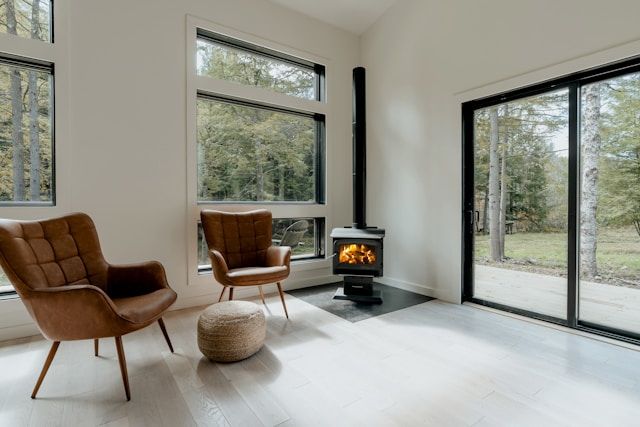Back
The Complete Virginia Airbnb Host Lodging Tax Guide: Airbnb Virginia Occupancy Tax Breakdown
Navigate Virginia-specific lodging & occupancy taxes for Airbnb and VRBO rentals with our comprehensive guide for short-term rental owners.
April 28, 2025

Written by:
Jeremy Werden
April 28, 2025

⚡️
Reveal any property's Airbnb profitability
Let’s face it, nobody starts an Airbnb business dreaming about tax compliance. Yet, it’s a crucial process that all hosts have to go through. Tax rates in Virginia can dramatically vary across its counties and cities, making it hard to determine what taxes you’re obligated to collect and remit. Today, we guide you through Virginia’s statewide and local lodging and occupancy taxes.
State-Wide Lodging and Occupancy Taxes in Virginia
Virginia treats short-term rentals much like hotels. State law requires the normal retail sales tax on accommodations. The state sales tax can range anywhere from 5.3% to 7% in total, depending on the location.
It’s applied to any stay less than 90 days and includes the total gross rental amount, including:
- The base nightly rental fee
- Cleaning fees
- Additional fees (linens, pets, etc.)
- Guest service fees
- Any other charges included in the guest’s bill
As mentioned, Virginia’s State Sales Tax varies by location. You can look up the exact percentage using the Virginia Sales Tax Rate and Locality Lookup. However, here’s a quick look at all the areas and their respective State Sales Tax rates:
- Areas With 7% State Sales Tax: James City County, Williamsburg, York County
- Areas With 6.3% State Sales Tax: Charlotte County, Danville Gloucester County, Halifax County, Henry County, Northampton County, Patrick County, Pittsylvania County
- Areas With 7% State Sales Tax: Charles City, Chesterfield, Goochland, Hanover, Henrico, New Kent, Powhatan, Richmond City, Chesapeake, Franklin City, Hampton, Isle of Wight, Newport News, Norfolk, Poquoson, Portsmouth, Southampton, Suffolk, Virginia Beach, Alexandria, Arlington, Fairfax City, Fairfax County, Falls Church, Loudoun, Manassas, Manassas Park, and Prince William
- Areas With 5.3% State Sales Tax: Everywhere else not mentioned.
Does Airbnb or VRBO Collect and Remit Taxes in Virginia?
Virginia law requires accommodations marketplaces, like Airbnb and Vrbo, to collect and remit all applicable state and local lodging taxes for their listings. This requirement went into effect in October 2022.
If all of your short-term rental transactions are conducted through an intermediary such as Airbnb or Vrbo, you generally do not need to register to collect Virginia sales tax. However, if taxes aren’t being collected on your behalf, you as the operator are responsible for collecting and remitting lodging taxes to state tax authorities.
It’s important to note that while Airbnb and Vrbo collects state and local sales taxes and local transient occupancy tax on behalf of its hosts in some areas, collection practices may vary by location. Always verify with your specific platform what taxes they’re collecting on your behalf.
City and County-Specific Local Tax Requirements
Beyond the state sales tax, many Virginia localities impose their own transient occupancy taxes (TOT) on short-term rentals. These local taxes vary significantly by location and are collected in addition to the state sales tax. The tax revenue these municipalities collect typically supports tourism promotion, convention centers, or local services.
Example Lodging Tax Calculation For a Property in Richmond City:
A 3-night stay at $200 per night.
- Total nightly Rate: $200 x 2 = $600
- Cleaning Fee: $120
- Total Listing Price for a 3-night stay: ($200 × 2) + $120 = $720
- Richmond Sales Tax (6%): $720 x 0.06 = $43.2
- Richmond Lodging Tax (8%): $720 x0.08 = $57.60
- Total Tax Collected (14%): $100.80
- Total Guest Payment: $720 + $100.80 = $820.8
Wrapping Things Up
Understanding and properly managing your tax obligations is crucial to running a successful and compliant short-term rental business in Virginia. While the tax landscape may seem complex, breaking it down helps make it more understandable and easier for hosts to comply with.
These tax ranges are meant for general information purposes. Local counties and even cities can have more specific rates that only apply to them. For this reason, we still highly recommend checking out the local STR regulations in your area or contacting local officials for more information.
Airbnb Tax Deduction Calculator
Paying too much in taxes? We have the perfect solution. Simulate an Airbnb home purchase below.
Purchase Price
$450K
Structure Value
70%
Apply Trump's Tax Cut (Bonus Depreciation)
Depreciation
$117,695
Interest
$21,600
Tax
$6,750
Year 1 Deduction
$146,045